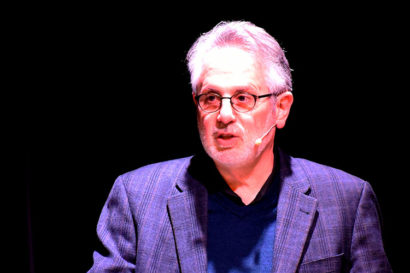Berkeley Talks: Professor David Raulet on the revolution of cancer immunology
Raulet, a professor in the Department of Molecular and Cell Biology, describes how these medicines work, their current limitations and the prospects for novel and more effective immunotherapy approaches
April 24, 2019
Subscribe to Berkeley Talks, a Berkeley News podcast that features lectures and conversations at UC Berkeley.
The last eight years have seen a revolution in approved cancer treatments, based on the development of medicines that arouse our immune systems to attack and eliminate our own cancer cells. These breakthroughs in immunotherapy of cancer were based on a deep understanding of the immune system itself, coupled with the first direct evidence that immune responses that attack human cancers occur naturally, albeit weakly. The treatments amplify natural immune responses against cancer, and are effective in some types of cancer, leading to cures in many patients. They are less effective or not effective in many other types of cancer. The success has galvanized major new efforts by researchers and drug companies alike to develop complementary and more broadly effective medications to treat other types of cancer.
David Raulet, a professor in the Department of Molecular and Cell Biology, gave a lecture on April 10, 2019, about the revolution of cancer immunology. In this talk, Raulet describes how these medicines work, their current limitations and the prospects for novel and more effective immunotherapy approaches, including those based on research in his laboratory.
This lecture is part of a series of talks sponsored by UC Berkeley’s Osher Lifelong Learning Institute (OLLI).
